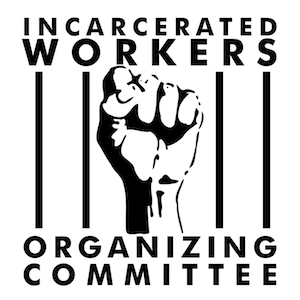After Oklahoma's historic commutations on November 1, 2019 - 400 inmates approved to be released - the focus has turned to Kansas. With overcrowding - and medical neglect - so bad it has caused riots, death, and out-of-state transfers of inmates, Kansas is desperate for solutions. The release of non-violent offenders is now gaining bi-partisan support. Yet one simple action by the state could free up hundreds of beds, save millions of tax dollars, and return hundreds of people to their families: commuting the sentences of "Old Law" inmates. The Kansas Sentencing Guidelines Act (KSGA) was passed in 1992, which reformed sentencing guidelines based on the severity of the crime and criminal history, in an attempt to alleviate some of the injustices of the criminal justice system and its biases based on race, class, etc. The Kansas Legislature applied those new guidelines retroactively for more that 2000 inmates, so that their sentences now matched the current guidelines, which in effect released many with time already served. But over 4000 inmates did not have their sentences converted to the new guidelines. They were left with their original, pre-1992 sentences, which the legislature had already agreed were unjust. The failure to remedy the past discrimination caused by the Old Law through full retroactivity was described as "unconscionable" by Bill Rich, Professor of Law at Washburn University. Each year the Kansas Legislature has revisited the question of what to do with those same Old Law inmates still occupying badly-needed bed space in Kansas prisons.The debate is driven by the stark reality that Old Law inmates still remain behind bars, while New Law inmates sentenced to the same or worse crimes just a few short months after them have been released. In many cases, released numerous times, while the Old Law inmates continue to labor under sentences from a law found to be discriminatory and bias. The only difference - the day they were sentenced.
Today, almost 30 years later, of those 4,263 Old Law inmates who were never converted, there remain approximately 200, non-1st degree murder offenders who have never been released.
Most disturbing, is the fact that of those 4,263 Old Law inmates never converted to the New Law, or never released, there are still twelve non-1st degree murder inmates who have served in some cases over 30 years in prison, and never even been allowed to see a parole board.
Of those 12 inmates:
- 92% are first-time offenders.
- 42% are minorities.
- Average age at offense: 26 / Average age today: 54.
In addition to the above Old Law inmates, there are approximately 100 Old Law technical parole violators who are confined in Kansas prisons, some having served over a decade for technical infractions of their parole, and are still awaiting release. These Old Law inmates have served more time on a technical parole violation then some New Law inmates are required to complete their entire sentence for the same, and many times, worse crimes.
As in every year past, KDOC officials are once again asking Kansas taxpayers to pay millions of dollars for a short-term fix of their overcrowding problem - this time, by paying an out-of-state, for-profit corporation to house 300-600 Kansas inmates over a thousand miles away from the inmates' families, churches, and support systems in Kansas, to a violent prison in Arizona.
To convert the small minority of Old Law inmates still remaining in Kansas prisons to the same New Law the 1,885 were converted to in 1993 - 30 years ago, would immediately provide the Department their badly-needed bed space - plus, save Kansas taxpayers nearly $16 million dollars annually by avoiding the short-sided, ill-advised, and expensive outsourcing of Kansas inmates to other states and for-profit facilities.
Gary Stotts and Chuck Simmons, both Secretaries of Corrections, both appointed by conservative Governors, recommended to the Kansas Legislature full retroactivity of the KSGA to all Old Law inmates as part and parcel of the complex challenges and long-term solutions of prison population management in Kansas. The current Secretary, Governor, and Kansas lawmakers today should convert the remaining Old Law inmates in Kansas prisons, and those serving parole or conditional release, to the flat-time offered under the 1993 KSGA sentencing grid.
